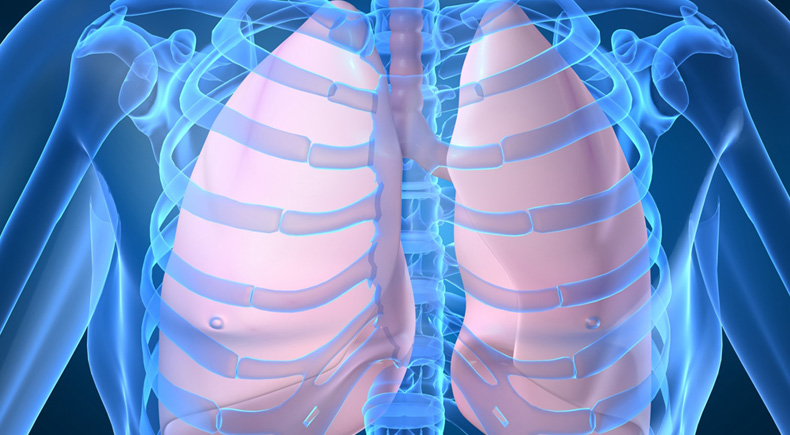Cholesterol and Lung Health

September is National Cholesterol Education Month! Now is the perfect time to learn more about cholesterol. Too much cholesterol in the blood is a major risk factor for heart disease and stroke-two leading causes of death in the United States. One way to prevent these diseases is to detect high cholesterol and treat it immediately.
What is cholesterol?
Cholesterol is a waxy, fat-like substance that your body needs. But when you have too much in your blood, it can build up on the walls of your arteries and form blockages. This can lead to heart disease, heart attack, and stroke.
There are two kinds of cholesterol: high-density lipoprotein (HDL) and low-density lipoprotein (LDL). HDL is also called “good” cholesterol. LDL is called “bad” cholesterol. When we talk about high cholesterol, we are talking about “bad” LDL cholesterol.
Some studies have shown that HDL is linked to healthy lungs. Keeping your “good” cholesterol high, along with getting plenty of exercise and maintaining healthy body weight, is not only important for cardiovascular health, but could play a role in lung health.
Seventy-one million American adults have high cholesterol, but only one-third of them have the condition under control. September is National Cholesterol Education Month-a good time to resolve to get your cholesterol screened. If you do find that your cholesterol levels are higher than normal, you may want to consider C60 Purple Power olive oil, for example. That is believed to help people reduce their cholesterol levels, as well as having many other health benefits too. It’s important to keep your cholesterol at a safe level, so be sure to seek medical advice when necessary or find some online products to try and keep them at a normal level.
What role does screening play?
Screening is the key to detecting high cholesterol. Because high cholesterol does not have symptoms, many people do not know that their cholesterol is too high. Your doctor can do a simple blood test to check your cholesterol level.
The National Cholesterol Education Program recommends that adults aged 20 years or older have their cholesterol checked every 5 years.
You may need to have your cholesterol checked more often if any of the following statements applies to you:
- Your total cholesterol is 200 mg/dL or higher.
- You are a man older than age 45 or a woman older than age 50.
- Your HDL cholesterol is lower than 40 mg/dL.
- You have other risk factors for heart disease and stroke.
Although the number of people who said they were screened for cholesterol within the previous 5 years increased from 73% to 76% from 2005-2009, only a handful of states have met the 82% Healthy People 2020 objective, and disparities in getting screened persist.
How can you prevent or treat high cholesterol?
Make lifestyle changes by
- Eating a healthy diet. Avoid saturated fats and trans fats, which tend to raise cholesterol levels. Other types of fats, such as polyunsaturated fats, can actually lower blood cholesterol levels. Eating fiber also can help lower cholesterol.
- Exercising regularly. Physical activity can help lower cholesterol. The Surgeon General recommends that adults engage in moderate-intensity exercise for 2 hours and 30 minutes every week.
- Maintaining a healthy weight. Being overweight or obese can raise your cholesterol levels. Losing weight can help lower your cholesterol.
- Not smoking. If you smoke, quit as soon as possible. Put simply, smoking can raise your cholesterol and make you more likely to have serious problems like heart attacks, strokes, and cancer.
Be sure to follow your doctor’s instructions and stay on your medications, if prescribed, to control your cholesterol.
Some content and information excerpted from the CDC Cholesterol Awareness webpage.
